Gastroenterologist Cover Letter Examples

May 29, 2025
|
12 min read
Crafting the perfect gastroenterologist cover letter: Digest tips that will help your skills shine like a colonoscope, ensuring your application stands out in the job market's complex digestive tract. Get your foot in the door with confidence!
Rated by 348 people
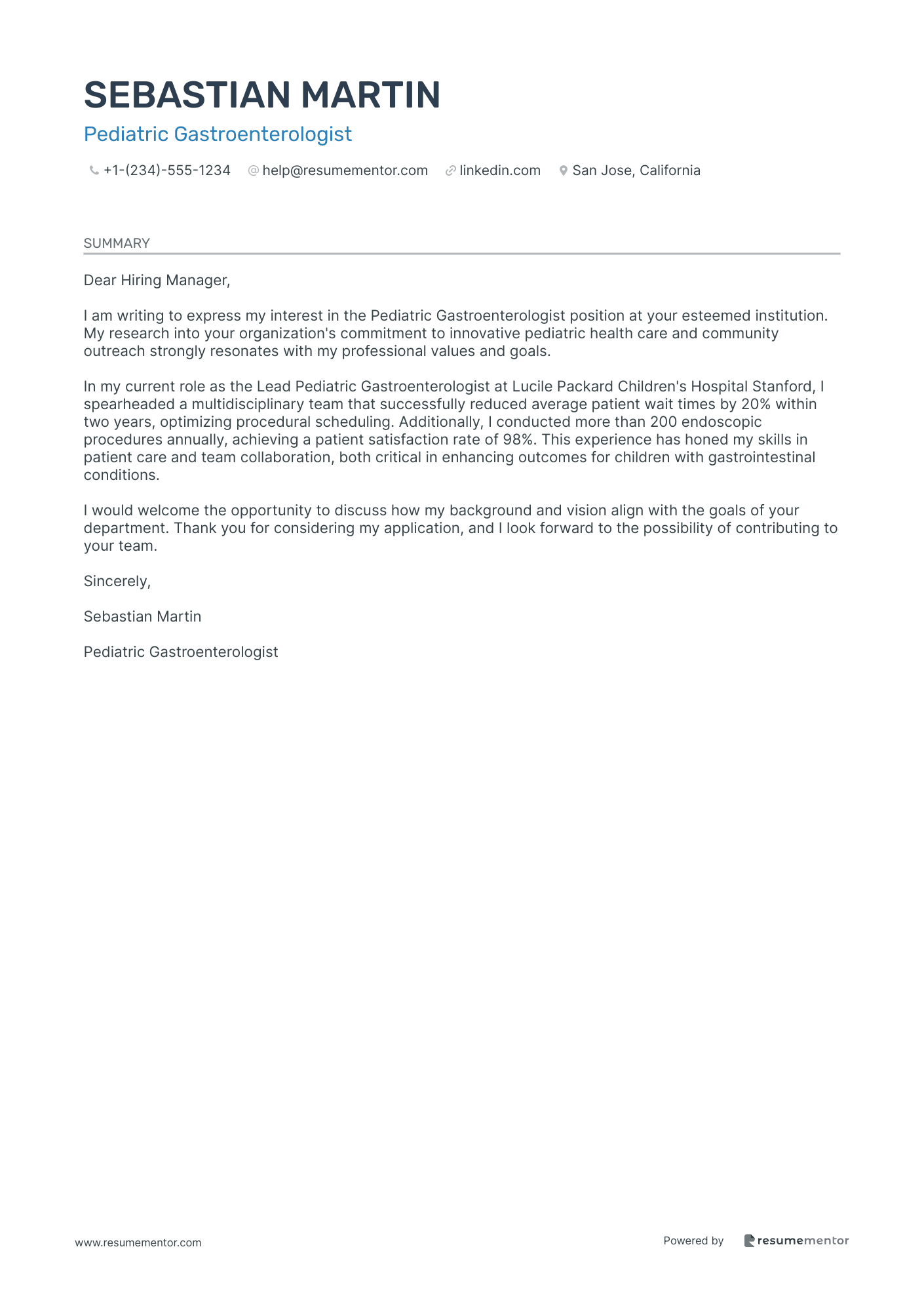
Pediatric Gastroenterologist
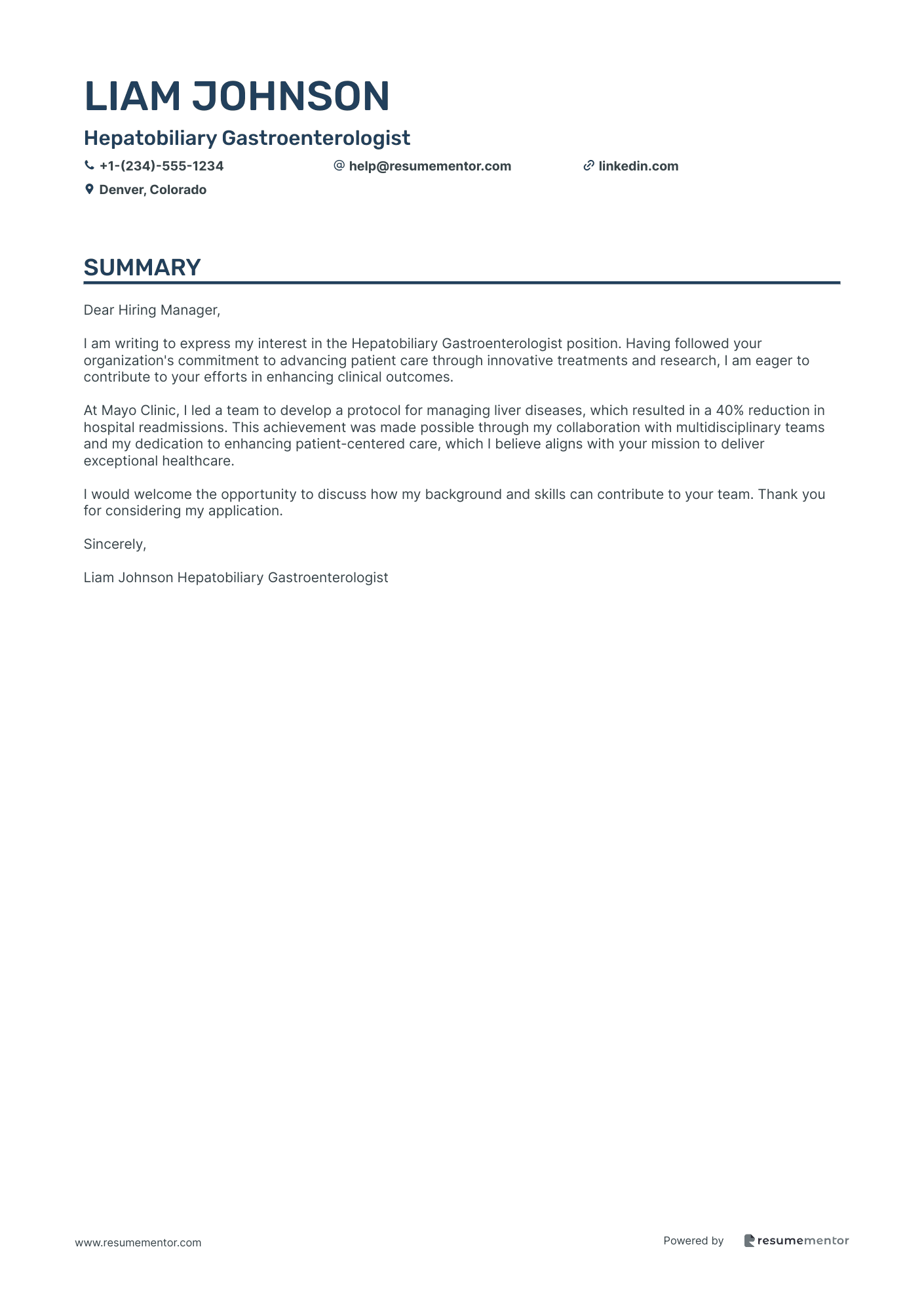
Hepatobiliary Gastroenterologist
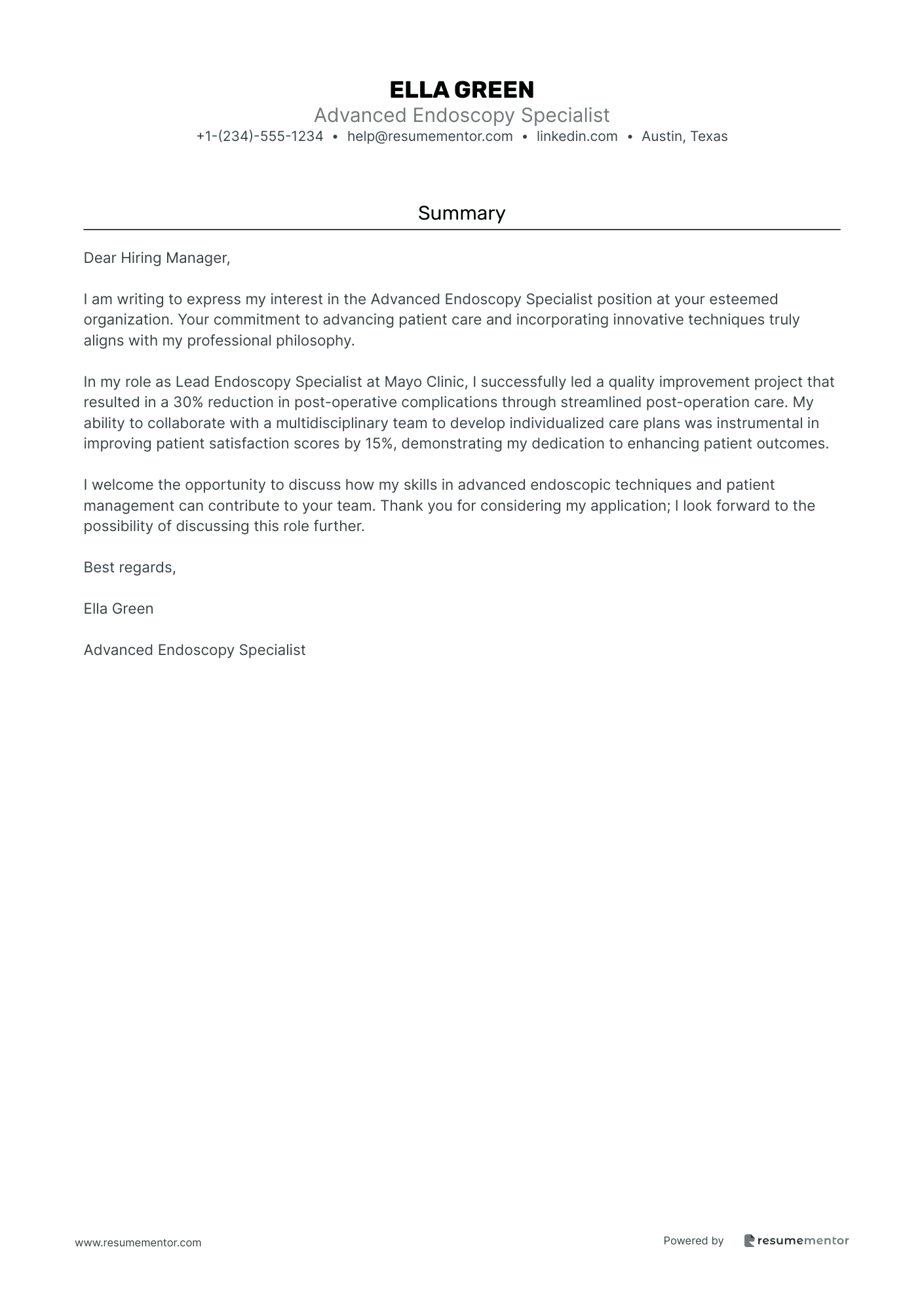
Advanced Endoscopy Specialist
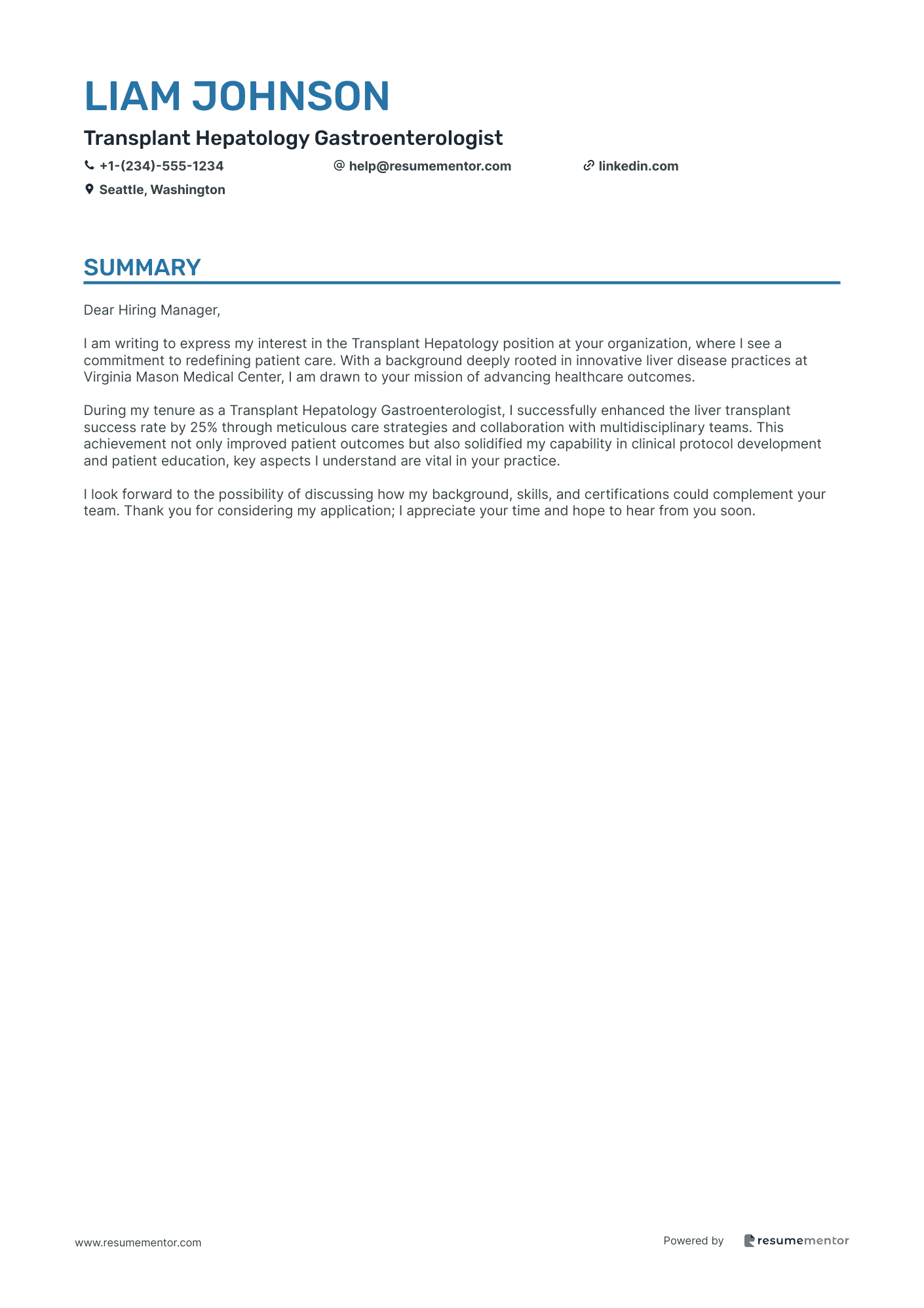
Transplant Hepatology Gastroenterologist
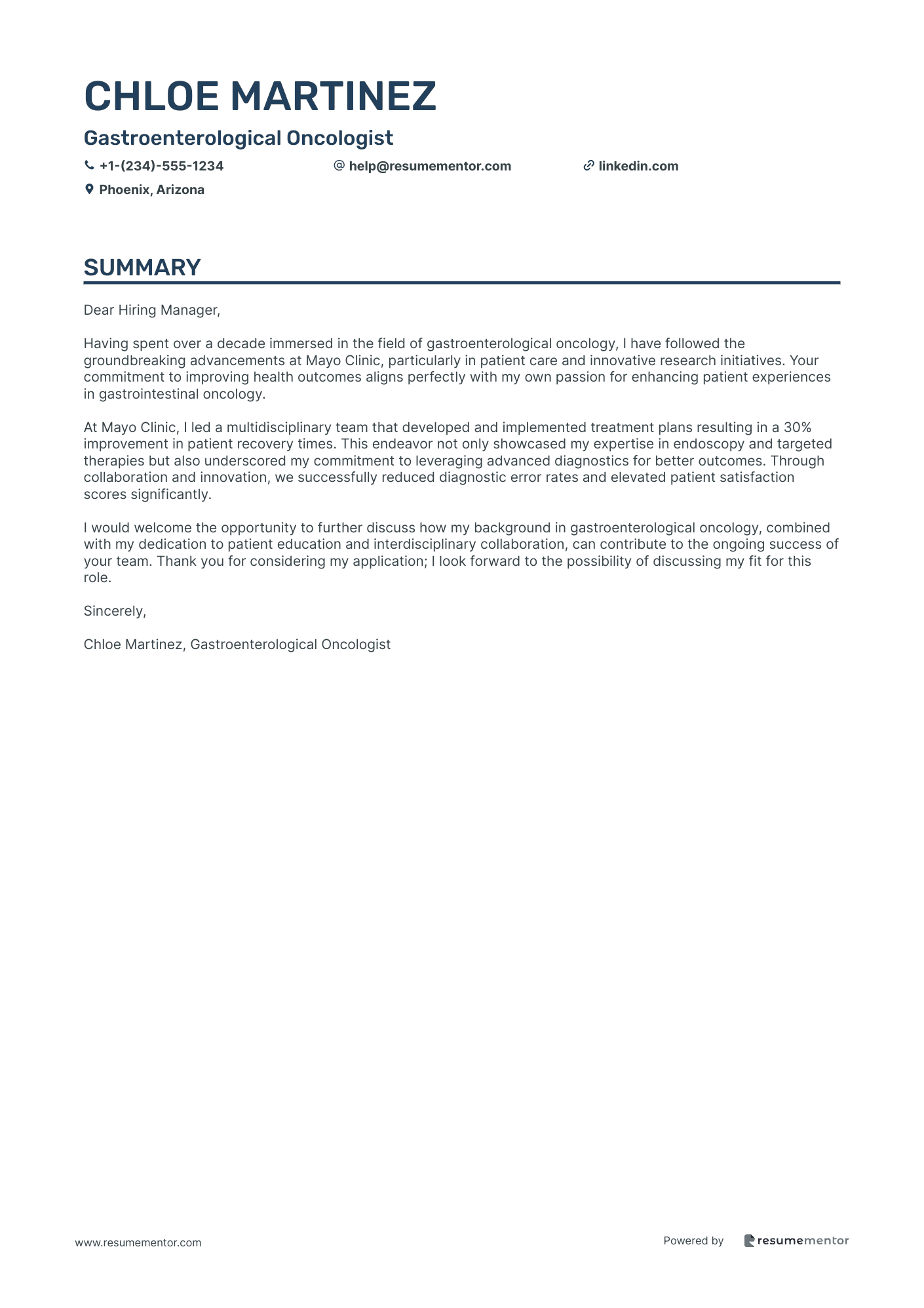
Gastroenterological Oncologist
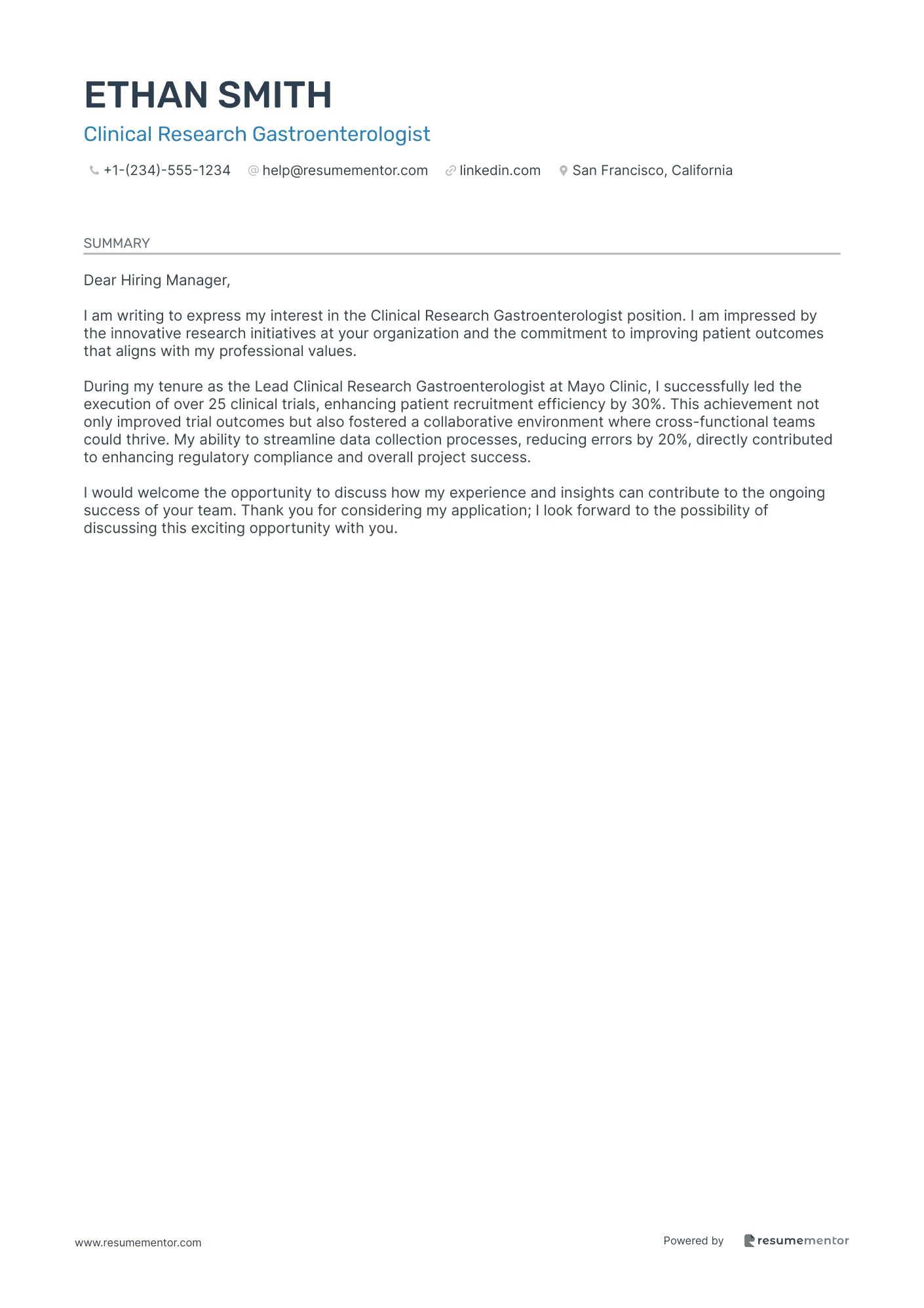
Clinical Research Gastroenterologist
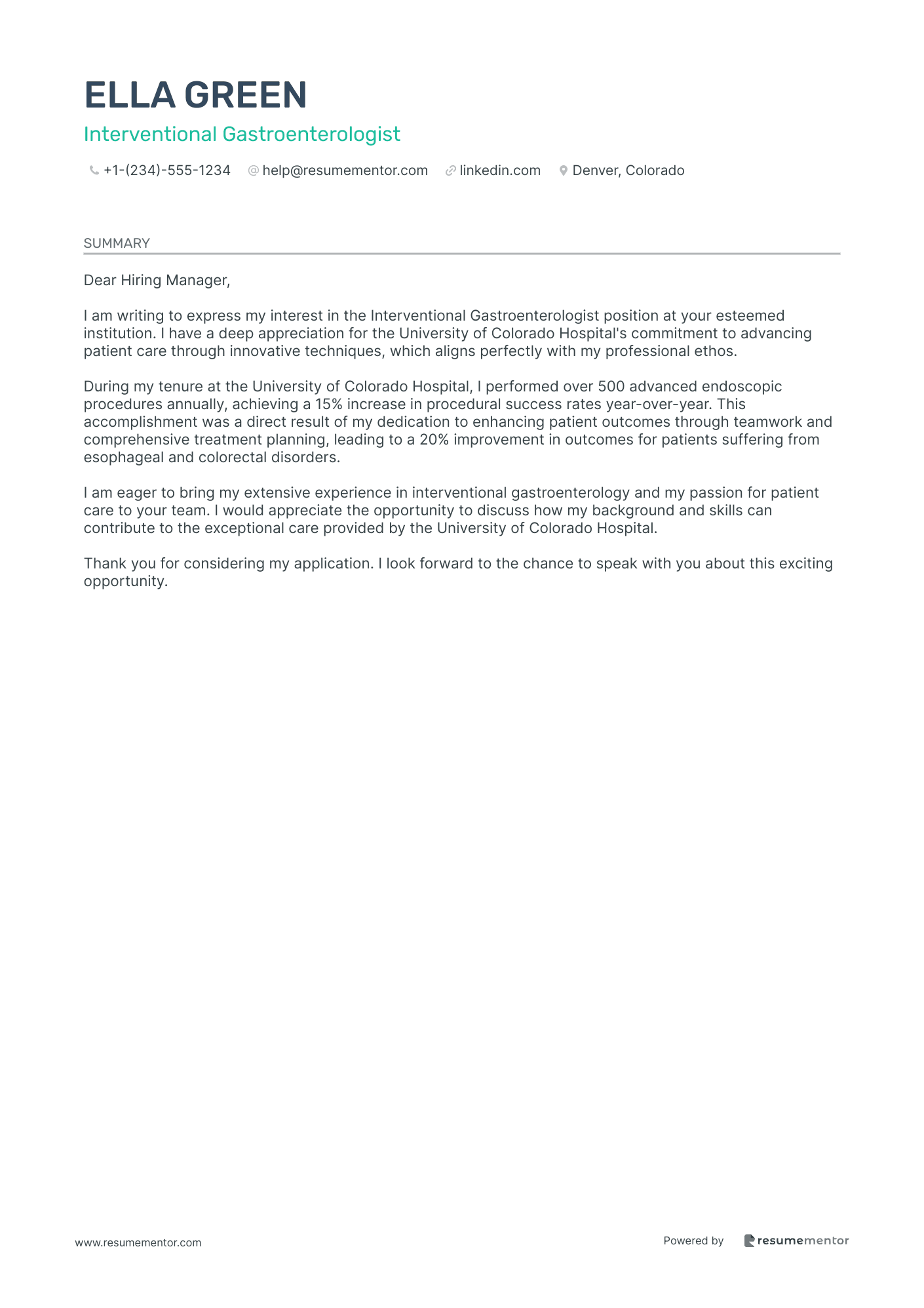
Interventional Gastroenterologist
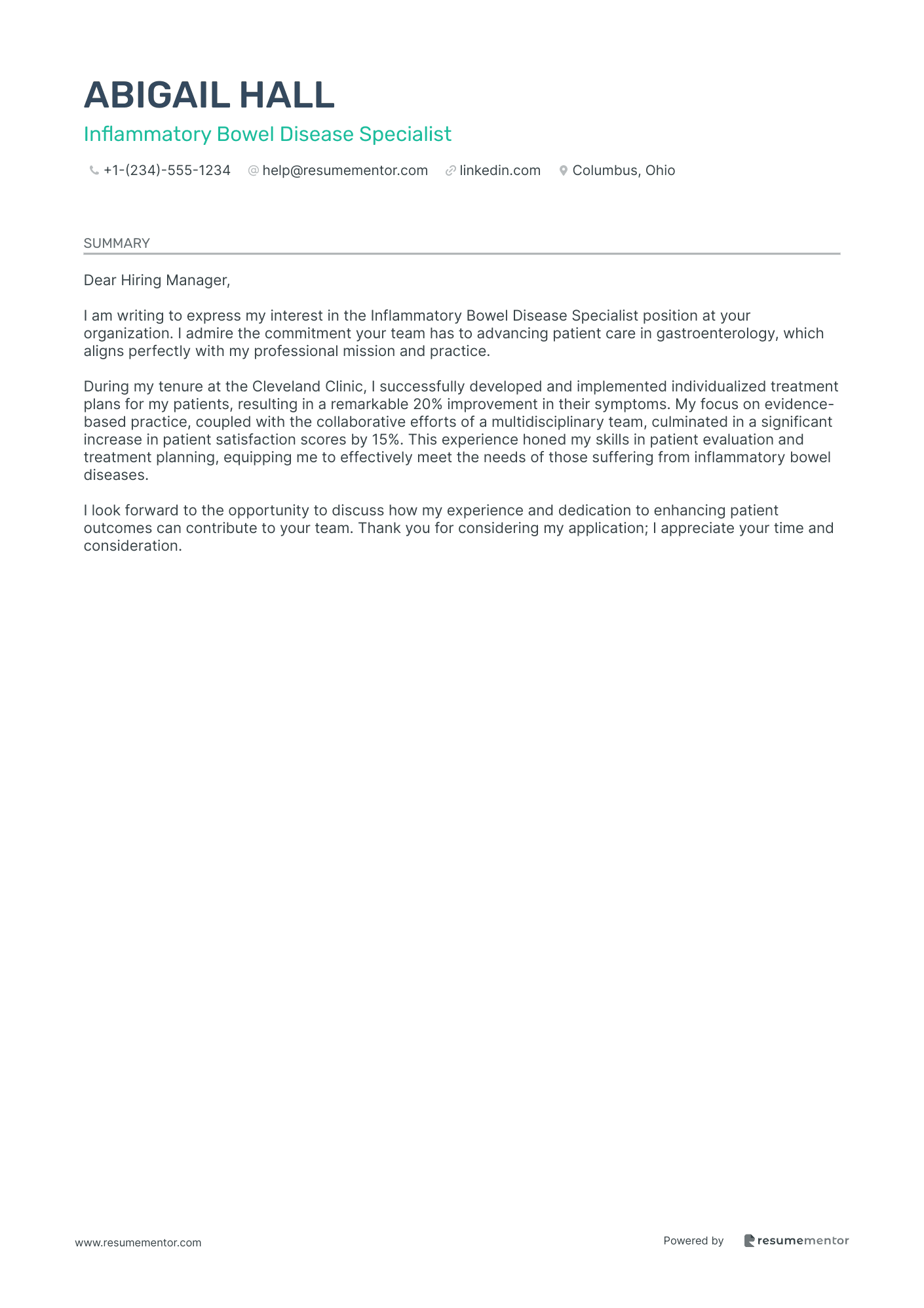
Inflammatory Bowel Disease Specialist
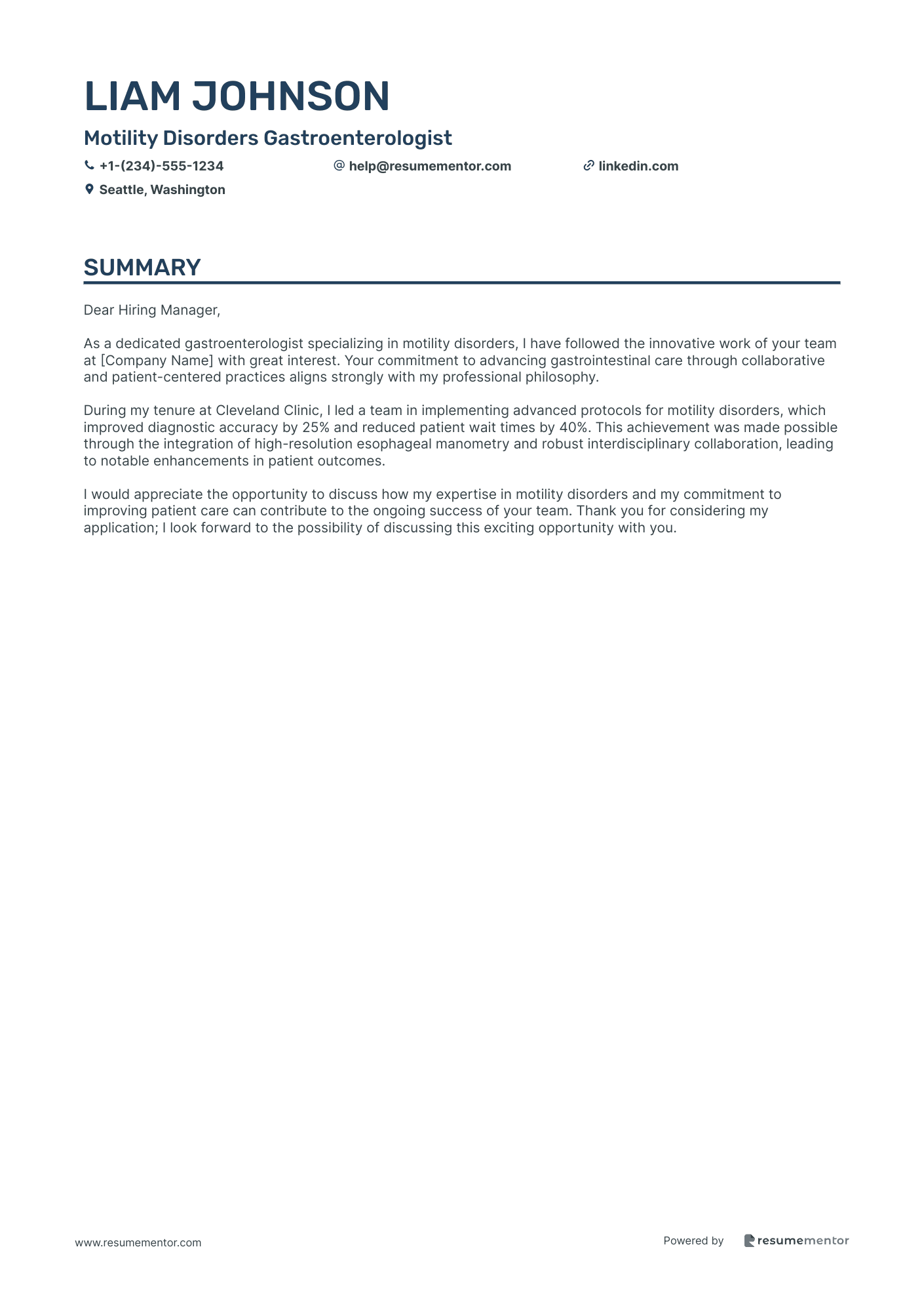
Motility Disorders Gastroenterologist
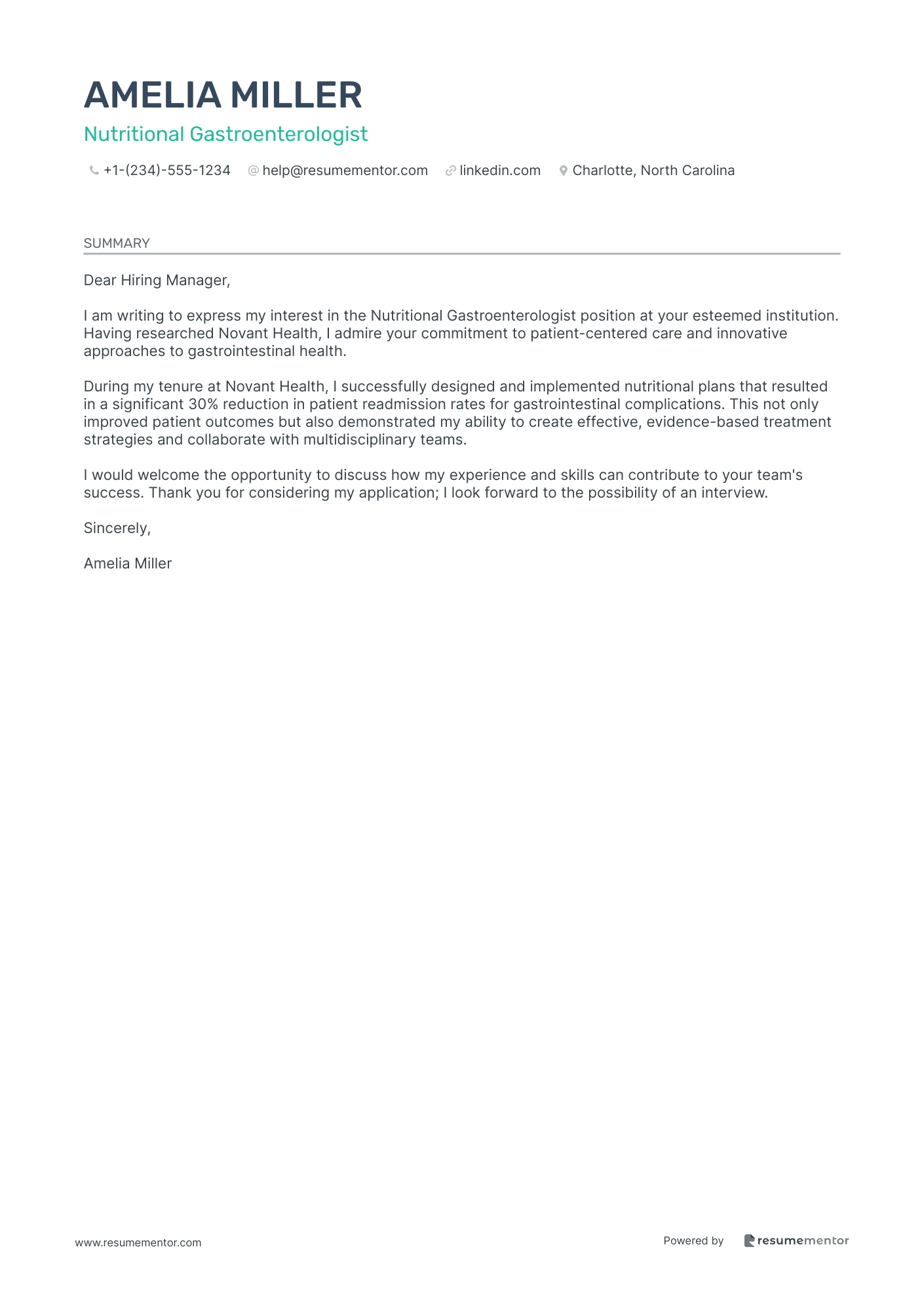
Nutritional Gastroenterologist

Pediatric Gastroenterologist cover letter sample
Hepatobiliary Gastroenterologist cover letter sample
Advanced Endoscopy Specialist cover letter sample
Transplant Hepatology Gastroenterologist cover letter sample
Gastroenterological Oncologist cover letter sample
Clinical Research Gastroenterologist cover letter sample
Interventional Gastroenterologist cover letter sample
Inflammatory Bowel Disease Specialist cover letter sample
Motility Disorders Gastroenterologist cover letter sample
Nutritional Gastroenterologist cover letter sample
Related Articles

Continue Reading
Check more recommended readings to get the job of your dreams.
Resume
Resources
Tools
© 2026. All rights reserved.
Made with love by people who care.
